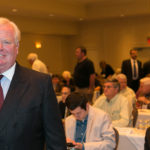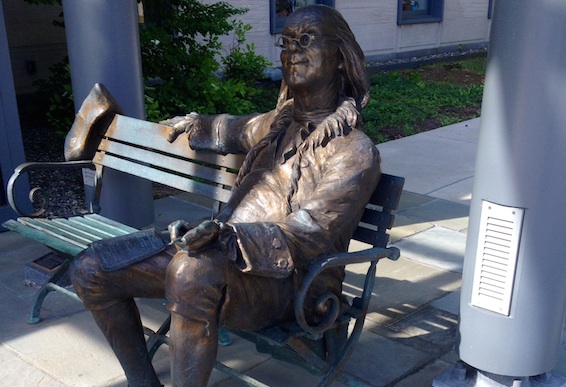BEN FRANKLIN TECHNOLOGY PARTNERS is a partner in Keystone Edge. They will be sharing insights from their leadership and news from their portfolio companies in the Ben Franklin On: section.
Wayne Barz has managed Ben Franklin TechVentures, an award-winning business incubator in Bethlehem, for more than 15 years. TechVentures is owned and operated by the Ben Franklin Technology Partners of Northeastern Pennsylvania. He previously managed the Bridgeworks Enterprise Center, an Allentown-based business incubator and member of the Ben Franklin Business Incubator Network. In the Keystone Edge series, “Lessons from Incubating Innovation,” Barz shares the many lessons he has learned over his two decades in the industry.
In the first installment of this series, I proposed that there really aren’t any universal lessons to be learned in entrepreneurship. Instead, here at Ben Franklin, we have accumulated a body of gut-informing experiences that we share with each new founder we encounter. These experiences aren’t offered as the “answer,” but rather delivered as gentle nudges that help each entrepreneur find his or her own solutions.

Promising founders can only become successful entrepreneurs if they are able to tailor the advice from us and others for their own unique situation. This is why so many investors focus on the entrepreneur and management team far more than on the company’s product or service. It’s the people that matter most.
Interpreting the needs and wants of people in the world is the most important founder skill that cannot be taught. There are many who think that successful companies start with an invention. In my experience, this is simply not true. New products start with an invention, but great companies start with innovation. I like to think of it this way: Invention happens to products, but innovation happens to people.
At Ben Franklin, we believe entrepreneurs are those who first identify market opportunities and then seek to create products to solve those problems. Inventors are frequently not the best entrepreneurs because they tend to identify products — protein interactions for instance, or some magic algorithm — that demonstrate breakthrough science, and then they search for a market.
Founders often identify market opportunities for their inventions virtually everywhere. “This new product can help every consumer and every business everywhere,” is not likely to be an effective marketing and sales strategy. I have learned that it is generally better to start with an innovation for a limited market (i.e., a group of people with a problem) and then work backwards to invent products to execute.
My kids must certainly be tired of hearing this piece of advice from me: In life, there are only two things that you will ever work on. You will either work on things or you will work on people. Most of our founders arrive at our door with incredible technical talents. They have studied and worked with electrons, molecules, algorithms and polymers. They elaborate on professional and academic experiences in which they developed and invented and hacked their way to breakthrough technologies. But these are all things — things that can be examined and manipulated in environments controlled for all sorts of factors like temperature, moisture, vibration and pressure.
Things are not people. People do not behave like things. You can set a chemical reaction into motion, control the environment, and time and time again, get the same result. However, selling, hiring, negotiating and purchasing do not occur in a controlled environment. Entrepreneurship is all about the uncontrolled environment of people. Co-founders, key first employees, suppliers, investors and customers are essential. Often in the case of customers and investors, you’re actually dealing with groups of collaborating people, adding another layer of complexity.
A great tech company absolutely needs a great product and a team that knows how to invent things, but to significantly increase your chances of success, you and your co-founding team need to know how to innovate for people.
Wayne Barz, Manager of Entrepreneurial Services for the Ben Franklin Technology Partners of Northeastern Pennsylvania, can be followed @TechonomicMan on Twitter and on the web at TechonomicMan.com.



